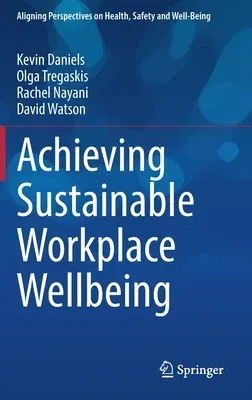In this groundbreaking interdisciplinary work, the authors focus on
organizational analysis to understand workplace wellbeing, deviating
from previous research that mostly looks at the individual worker or
intervention. In addressing the question of why workplace health and
wellbeing practices initiatives fall short of delivering sustained
improvements in worker wellbeing, this book moves beyond localized
explanations of the failure of specific interventions. Instead, it
creates theoretical frameworks that explain how wellbeing at work can be
improved and sustained. The authors use evidence from systematic and
comprehensive surveys of the literature as well as new empirical
research, and present an explanatory framework of the processes through
which organizations change to implement and accommodate workplace health
and wellbeing practices. Learning, adaptation and continuation explain
successful implementation of workplace health and wellbeing practices,
while Gestalting, fracturing and grafting explain how organizations
resolve or negotiate conflict between health and wellbeing practices and
existing organizational procedures, systems and practices. In addition,
the authors reflect on the implications for research of reframing the
unit of analysis as the organization and how studies on workplace
wellbeing practices can provide a conceptual platform for thinking about
the way organizations can create social value in a broader sense.
This book, authored by experts in their field, is a great resource for
academics and professionals of organizational studies and of worker
wellbeing across the social sciences, behavioural sciences, business and
management courses, wellbeing research, and labour studies.

